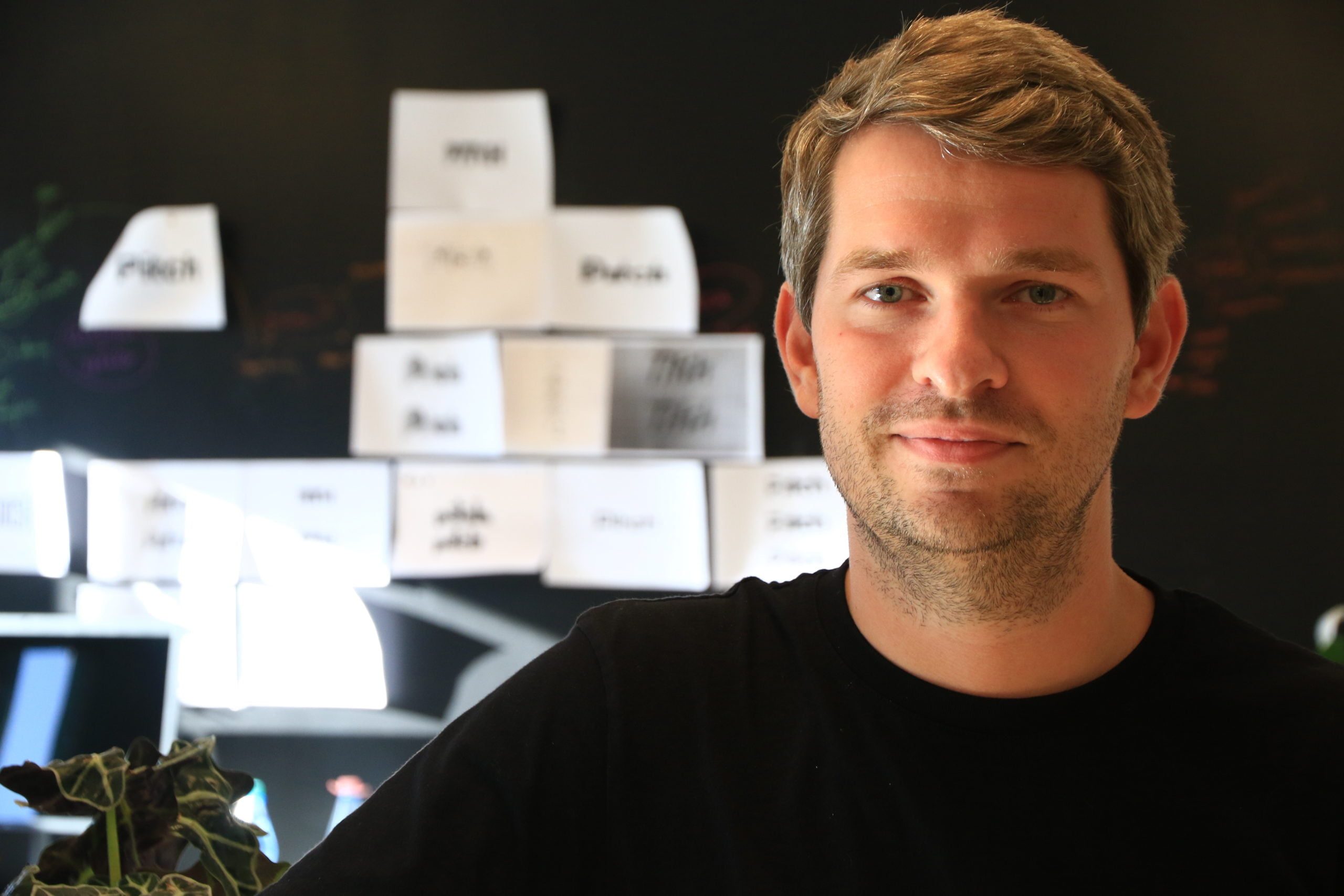
Christian Reber is now familiar with new beginnings. The serial founder moved with his family from Berlin to Mallorca last fall. In January 2024, he decided to step down as CEO from his second startup pitch. Today, after three years of development, Reber is launching his latest project Superlist – which is strictly speaking the conclusion of his original invention Wunderlist. The free application previously allowed users to record and manage tasks and notes. With the successor, the Berliner wants to make up for what was no longer possible after the million-dollar sale of his to-do list app to Microsoft in 2015. “With Wunderlist, we always wanted to build an app that works for both teams and individual users,” says the founder.
For users who can use it to structure both private errands and professional tasks, this has primarily practical advantages – and for Reber's startup, financial ones. The exit seemed logical to him at the time, as he believed the market for productivity software for consumers was in danger of taking a turn. The problem: Self-organization apps like Evernote experienced significant user growth, but many of the users didn't want to pay for the services. Reber observed the same “weakness” in Wunderlist.
Read too
Wunderlist successor: Reber processes grief and senses business opportunity
Although Microsoft assured him after the purchase that it would not make any major changes to the software and that Reber would let his product team continue to work on it, things turned out differently. Wunderlist was integrated into the in-house tool Microsoft To-do and the brand disappeared from the market – Reber's vision was gone. An attempt to buy it back via X, which was still Twitter in 2019, also failed.
For Reber, the new entrepreneurial start with Superlist primarily has a psychological component – and he follows his business instincts: “It's a mixture of emotional reaction, sadness for Wunderlist, personal needs because I no longer use a task manager myself “Since Wunderlist is no longer there, and business opportunity,” says the founder in an interview. “I really see the opportunity to create another large company around productivity software in Europe.” In his opinion, the perfect technical tool to organize daily tasks and priorities, both privately and professionally, is still missing.
According to Reber, the same problem has existed in the software world “for ages”: On the one hand, products are being developed for individual users, such as the to-do list app Things or the Apple note-taking tool Notes. However, they are not suitable for user collaboration: “As soon as these tools are used in business, they break because they are not scalable,” says Reber. On the other hand, employees in larger companies would work with project management software like Notion, Asana or Basecamp. “The individual can no longer cope with it at all because they sink into a swamp of tasks and no longer see what actually needs to be done today.”
Read too
The app comes onto the market as a free and pro version
With Superlist, both are now brought together in a simple environment: users can log in privately, invite other team members, partners and friends to the tool and join lists of teams themselves. Reber takes the example of freelancers who work for different companies and often have to switch between contexts. At the same time, existing apps such as Slack, Google Calendar, the email inbox and Zoom are integrated into the task manager, so that Superlist can become the central location for all tasks, notes and to-do lists.
Reber promises a seamless transition between private and professional workspaces. But he also admits: “We still have a lot to improve and will now learn a lot through the launch.” In the future, there are plans to map work processes in the tool so that tasks can be handed over to employees automatically. So far, AI has helped formulate structured tasks from emails and chat messages.
Read too
The startup relies on a classic SaaS model: In the free version, users can work on lists with up to five people at the same time, create unlimited private reminders and lists and have some program integrations. For larger teams of up to 25 people who share files and to-dos, Superlist costs eight dollars a month (the equivalent of around 7.40 euros). From ten dollars (9.20 euros) per month, the number of team members and the app functions are unlimited. Starting today, users can download Superlist for free in the app stores.
After arguments: Reber reorganizes the management team with Niklas Jansen
Reber actually wanted to bring Superlist onto the market earlier. However, things didn't go well with his co-founders, with whom he started the startup in 2020. Reber does not want to go into the problems in more detail in the interview. There was a typical “founder clash” and there was a lack of trust on all sides, so after two years he decided to rebuild the team around the former CEO Steffen Kiedel (ex-Wunderlist). Marcel Käding (ex-Wunderlist) and chief product designer Brandon Arnold are still active as co-founders at Superlist. The Berliner brought Blinkist founder Niklas Jansen, with whom Reber has already set up his own investment fund Interface Capital, to his side. Jansen, today's CEO of Superlist, completely turned the company around. They had redeveloped the software again. “That was super painful for us because after two years of work you don’t want to start over again, but that’s how it is sometimes,” says Reber.
Read too
For himself, the Berliner decided from the start to “only” act as chairman and founder of Superlist. The entrepreneur currently works one day a week for the app and supports the team with strategic questions, setting up a roadmap and quality optimization. “I really enjoy it because I realized that my strength lies primarily in creating something from nothing, i.e. bringing teams together, creating a product vision and going from zero to one,” says Reber. He adds: “My strength is not in scaling companies to the maximum size. It’s just not my passion, I had to realize that myself and that took a few years.”
Cherry Ventures, EQT and Reber have so far invested 13.5 million euros in Superlist
The remaining days of the week the entrepreneur takes care of his VC Interface Capital. He's particularly enjoying investing at the moment, and he also likes being more independent and less tied to a company as a managing director. Reber invested around 1.5 million euros of his assets in Superlist. A further twelve million euros were raised long before the funding crisis, in the Corona years 2020 and 2021, by the Berlin investment company Cherry Ventures and the Swedish VC EQT Ventures. The startup used the money to develop the software and brand and used part of it to hire the team.
This time the team deliberately wants to keep Reber small in order to quickly become profitable. At his second company Pitch, which developed software for presentations and raised over 125 million euros (135 million US dollars) from well-known VCs such as Tiger Global, two thirds of the workforce had to leave in January – at the same time as Reber's resignation. Reber regretted the move in a Linkedin post, but explained that Pitch needed to develop into an organically growing, profitable company due to investors' “sky-high” expectations. “You have to honestly say that with Pitch I had to learn the hard way that venture capital doesn't always scale well if the software doesn't keep up quickly enough,” Reber remarks self-critically today.
Read too
The hope at Superlist is now to generate sales quickly, bring the product to market and make the company profitable. The entrepreneur envisions annual recurring income (ARR) of ten million euros. Reber would only consider additional VC money when he reached breakeven. “Still, I believe that risky projects will always need venture capital,” said the founder.
Although Reber may have seen things differently almost nine years ago, the founder has now gained a positive view of his exit. “For us, in retrospect, the Wunderlist sale was the best thing that could have happened. I didn't realize it at the time, but I understood it years later.” He might not have achieved the financial independence that the $200 million sale brought him otherwise. The founder still doesn't want to lose Superlist to a buyer too early.
Source: https://www.businessinsider.de/gruenderszene/business/nach-abgang-als-pitch-ceo-christian-reber-launcht-wunderlist-nachfolger/







